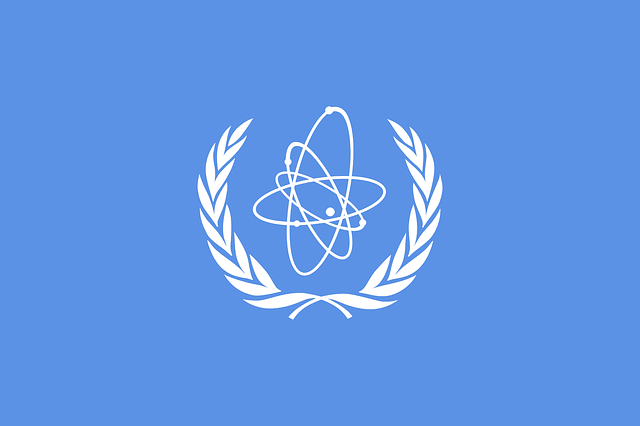 For the past year, 127 Member States have received the International Atomic Energy Agency (IAEA) assistance through the project of interregional technical cooperation, which was approved by the Board of Governors at the meeting held in November 2019 гand which is a part of Technical Cooperation Programme for 2020-2021 cycle. In addition to the assistance in the equipment and material, the IAEA supported the states by providing numerous webinars and educational video material in Arabic, French, English, Spanish and Russian language, laboratory support, technical guidance and expert services.
For the past year, 127 Member States have received the International Atomic Energy Agency (IAEA) assistance through the project of interregional technical cooperation, which was approved by the Board of Governors at the meeting held in November 2019 гand which is a part of Technical Cooperation Programme for 2020-2021 cycle. In addition to the assistance in the equipment and material, the IAEA supported the states by providing numerous webinars and educational video material in Arabic, French, English, Spanish and Russian language, laboratory support, technical guidance and expert services.
 The equipment packages contained detection equipment ( real time RT-PCR test kits and related items) together with reagents and consumables, as well as biosafety cabinets and the equipment for sampling, testing, quality control and personal protection ensuring safe sample analysis. The equipment and reagents reliability was confirmed in the Animal Production and Health Laboratory in cooperation with the Austrian Agency for Health and Food Safety (AGES). In cooperation with the World Health Organization (WHO), the IAEA developed the technical specifications of medical diagnostic devices for COVID-19 virus and related complications. These technical specifications were delivered to all Member States.
The equipment packages contained detection equipment ( real time RT-PCR test kits and related items) together with reagents and consumables, as well as biosafety cabinets and the equipment for sampling, testing, quality control and personal protection ensuring safe sample analysis. The equipment and reagents reliability was confirmed in the Animal Production and Health Laboratory in cooperation with the Austrian Agency for Health and Food Safety (AGES). In cooperation with the World Health Organization (WHO), the IAEA developed the technical specifications of medical diagnostic devices for COVID-19 virus and related complications. These technical specifications were delivered to all Member States.
The IAEA worked diligently towards good coordination with the suppliers and delivery services, and continues to work closely with all Member States in order to facilitate custom clearance and local delivery. The end-users have received 1,950 RT-PCR diagnostic kits and related items so far.

The agreements on the delivery and logistics were entered into with the World Health Organization and the World Food Programme, while the cooperation on the joint procurement of the personal protection and logistics was established with the United Nations and the UNICEF.
Throughout the past year, the International Atomic Energy Agency donated to the Republic of Serbia three RT-PCR testing units, amounting to 227,286.40 euros, which was delivered to laboratories dealing with human COVID-19 testing. Serbian Radiation and Nuclear Safety and Security Directorate (SRBATOM) sent this equipment to the Institute of Virology, Vaccines and Sera “Torlak”, the Scientific Veterinary Institute ‘Novi Sad’, and the Veterinary Specialist Institute “Kraljevo”.

Since the pandemic led to travel restrictions, the IAEA organized numerous online sessions in the form of webinars so that the training courses, guidelines and advice could be timely organized, and as many countries as possible could be included. The webinars, devised as support to laboratories conducting COVID-19 testing, provided instructions on the efficient use of RT-PCR tests, the examples of good practice in sampling and sample preparation, as well as result interpretation. More than 2,000 participants have taken part in these webinars, with almost 2,000 subsequent views of the recordings to date.

The webinars the IAEA organized for health care providers in the field of nuclear medicine and radiology with the aim of adapting standard operating procedures and mitigating the risk of COVID-19 infection among the patients, staff and public have had 6,000 participants and more than 7,900 subsequent views of the recordings so far. Unlike the webinars on COVID-19 training, these webinars focused on providing advice in the field of nuclear medicine, radiology and radiation oncology, as well as advice on the use of personal protective equipment, and the exchange of other institutional considerations and experience.
There were nine video materials containing instructions on the use of personal protective equipment, sample collection, their transport and keeping, as well as the use of real–timeRT-PCR technology in COVID-19 virus detection. This was followed by another video material on the use of serology in the COVID-19 analysis. This material together with the information material on COVID-19 virus is available on the IAEA official website https://www.iaea.org/topics/covid-19/iaea-assistance-for-the-rapid-detection-and-management-of-covid-19 together with the most frequently asked questions on RT-PCR tests.

In addition, more than 500 laboratories received the updated Standard Operating Procedures (SOPs), reagent information and validation data through VETLAB platform whose aim is to support the Member States in developing their own national laboratory capacities for early detection and control of transboundary animal and zoonotic diseases posing a threat to human and farm animal health. The webinars are available in Arabic, English, French and Spanish language, while the ones in Russian are being prepared.
Since the outbreak of the pandemic, the IAEA has maintained a continuous contact with its Member States regarding COVID-19 response. The permanent missions with the IAEA, National Liaison Offices, donors, and laboratory end-users as well, have been continuously informed on the issuance of procurement orders, due delivery dates, shipment reception, transit, arrival and delivery to its end-users. The permanent missions had an important role in delivery facilitation and permit provision, which enabled donations to arrive on time in its final destination.
Not a single regular Technical Cooperation programme activity has been discontinued during the pandemic, even though these have been conducted in extraordinary circumstances, and faced great challenges and travel restrictions. The IAEA Secretariat has maintained close connections with its Member States and programme partners in order to provide for safety for the participants in fellowships and scientific visits, as well as continuity in its work. The Member States meeting on Technical Cooperation Programme for 2021, held on 30. October last year, contained a brief update of the regular TC activities during the pandemic. As a result of all the above, the TC programme had achieved a high implementation rate of 80.4% by the end of 2020.
In order to confirm that the assistance had reached its end-users and evaluate its sustainability, the IAEA issued a follow-up survey to the laboratories receiving the assistance. According to the findings 76 laboratories, providing testing for 7.5 million people (3.7 million men and 3.8 million women) have responded so far, which means that the IAEA assistance enabled them to increase their capacities..
Of the responding laboratories, 10% had no PCR testing devices apart from those provided by the IAEA; 86% confirmed that these packages covered some initial shortcomings in the testing needs; and 96% responded that the IAEA assistance upgraded their capacities in the detection of COVID-19 virus and other pathogens or any other related services. The overall of 96% of the laboratories stated they would be able to continue the testing outside the scope of the initial IAEA assistance, with only 6% reporting obstacles in the future testing due to current global problems in the purchase of laboratory reagents and consumables.
The IAEA also conducted some additional analyses, including those on the impact of COVID-19 pandemic on the provision of diagnostic and therapeutic procedures in the field of nuclear medicine. This study pointed at the significant decrease in the number of diagnostic and therapeutic procedures during the pandemic, as well as at the unavailability of the essential material, such as radioisotopes, generators and tests.
Source: The Progress Update Report by the IAEA Director General on the IAEA Support to Member States Efforts in Addressing the COVID-19 Pandemic, March 2020 – January 2021 (GOV/INF/2021/4), of 26 January 2021

